Eric Gudde, the KNVB GM on the photo. Symbol of Chaos.
Hi guys, hope you are all staying safe and sane without live football?
I was planning to make the Johan Cruyff 1990 post now, but the Covid situation deserves some attention – as commented on by some of you – and we had the news of Ronald Koeman’s hospitalisation as well.
To start with that, it is not clear what he has, exactly. Probably needs to have a vein clearance situation, as Ronald is known to enjoy the good life (wine, food).
He is given all the space to recover by the Federation and with our football agenda empty, he will get that time easily. People like his brother Erwin and Dick Advocaat already mentioned publicly that they expect him to return to his job, no worries.
The impact on the Dutch football scene of the Covid-19 situation is huge. As you will appreciate: most Dutch clubs are not wealthy and in the second tier – Keuken Kampioen Divisie – it is tough going.
Even a rich club like Ajax will get hurt, if this goes on too long and if we indeed have to play without fans for a long spell, it will everyone badly.
So the Dutch Federation decided to end the competition and as they believe there would have been time for the two relegation candidates to play themselves safe… So, in their infinite wisdom, they have decided not to relegate anyone and not to promote any club from the 2nd tier to the first.
As the UEFA does want to hear how the competition ended re: European spots, Ajax is the #1 (but not the champion) and goes straight into the CL. AZ will play CL qualification football with Feyenoord straight to the Europa League and PSV playing Europa League qualification, just like… Willem II. The Play Offs have been canceled and there is a fair chance that the Dutch Cup final ( Feyenoord – FC Utrecht) will also be canceled.
There is a lot of anger about this amongst the clubs. Feyenoord probably the only club without any hang ups. Ajax wanted the title. AZ wanted a way to challenge Ajax for the title. PSV wanted the coefficient ratios over the last 5 seasons to be counted, so PSV would get the Feyenoord spot.
Cambuur coach Henk de Jong called this the “Blackest Day in Sports History” and that got him an interview on the BBC
FC Utrecht has the most reasons to complain, of them all. They had 1 game in hand, and 1 point behind Willem II. Their goal difference was better than that of Willem II. Based on this and on the coefficient ratios, FC Utrecht would have been the better choice to play European. Also, because they made it to the National Cup final.
RKC and ADO Den Haag ended up not being relegated. Good news for them. But both Cambuur and De Graafschap were miles ahead in the 2nd tier and would have been promoted in any other situation.
So, these clubs (Cambuur and De Graafschap) along with FC Utrecht are making their way to the courts.
People like Marco van Basten – independent as ever – have slammed the KNVB for their way of working: the outcome but also about the process used.
At some point, the KNVB wanted the clubs to vote for relegation of clubs or no relegation.
From the top of my head: 15 clubs said “YES” to relegation. 9 clubs said “NO” and the rest refused to vote (PSV, Ajax, Feyenoord, Groningen, Vitesse and others), as they “didn’t want to have a say in relegating their colleagues”.
FC Utrecht sad. RKC happy.
This tells you, that the non-voters actually did want the two bottom clubs to get relegated but they refused to say it. If not, they would have picked “NO”. Right?
But for some reason, the KNVB added the non-votes to the NO! Meaning that the majority allegedly voted NO to relegation. Which is just plain stupid.
I think the court cases are being held today/tomorrow.
The KNVB was capable of cancelling the competition because – as opposed to the situation in Spain, Germany and England – the tv money has been paid out in full, by Fox Sports, which is a good thing in a way.
So, in France (where they ended the competition as well) and Holland, the result of all this is anger, frustration and court cases.
Dutch consultants Hypercube have come up with an alternative plan, which would mean that all competitions will be played out after all!
They have pointed towards the World Cup in Qatar, which is being played in the Winter of 2022. So why not use this calendar year to finish the competition and start the new competition at the start of 2021. So use Calendar year as a season, instead of August till May.
Gini using the off-time to find out how his tools work…
Then, the Football Federations have the option to go back to the broken-calendar structure for football seasons after the World Cup 2022.
“This takes a lot of strain and pressure away from the clubs and the federations. The English and Germans want to finish the season whatever the cost, due to the tv money they need. The number of seasons remains intact. Every competition will have a winner, a champion and all decisions are made on the pitch and not in a board room or a court house”, so says Managing Director Pieter Nieuwenhuis. And the oft criticised winter World Cup in Qatar can suddenly be the solution we hoped for.
Nieuwenhuis: “This is way more sensible. Otherwise they’d have to plan competition games, European games and national team games from September onwards in a very full season, and if something goes wrong, we are all in deep doodoo again!”
Virgil van Dijk posted this
Hypercube also claimed that in 2023, the clubs/federations could decide to start with a short competition until the summer of 2023, and then go back to the normal structure, of August – May. “We calculated this through, as the clubs will suffer financially from this plan in the first months. We believe for Europe, there is a need for 8 Billion Euros to finance this. This is a lot, but if you take into account that the turnover of Football Europe is 30 Billion Euros, it’s not that bad. Surely, playing half a season in empty stadiums is even more costly.”
The UEFA and FIFA together have 3 Billion Euros in cash and could be guarantors. This would require zero subsidy money. Call it the Marshall Plan for football. “What we need now is a long term plan with solid financials, because if we just rush into this, certain clubs are at risk of going bankrupt.”
The big question though: what to do with players’ contracts, who now go from July till June.
“We don’t have all the answers. There are options, you could say: all players’ contracts will be shifted to the Jan – Dec format. Or, you could decide to keep the contract terms as is, meaning players will suddenly finish the season with another club. I think the international Players’ Unions will need to weigh in on this.
Memphis wants the cup in 2021
As for the Covid-19 impact on our lads… I don’t think there is any. Players like Memphis and Malen will have more time to get fit, and apart from Babel and Strootman, all our players will benefit from the additional time to get ready for the Euros. Blind can deal with his heart issue (we hope), as will Koeman. Zirkzee, Wijndal, Stengs, Boadu, Kluivert, Karsdorp, Bijlow and others will have a bit more time to build on their strength, while Marco van Ginkel might be joining in again as well?
A fit Koeman, a super motivated Memphis, Malen in form and Frenkie with a strong Barca season in his back pocket, why wouldn’t we win the Euros this time?
How are you guys doing? Share your stories below.

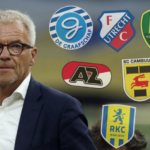
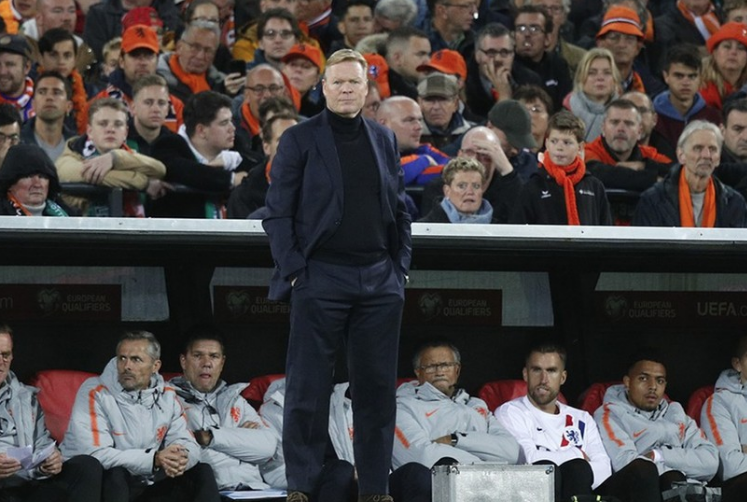

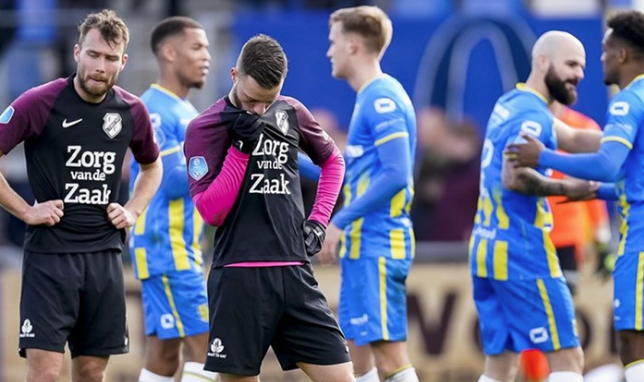
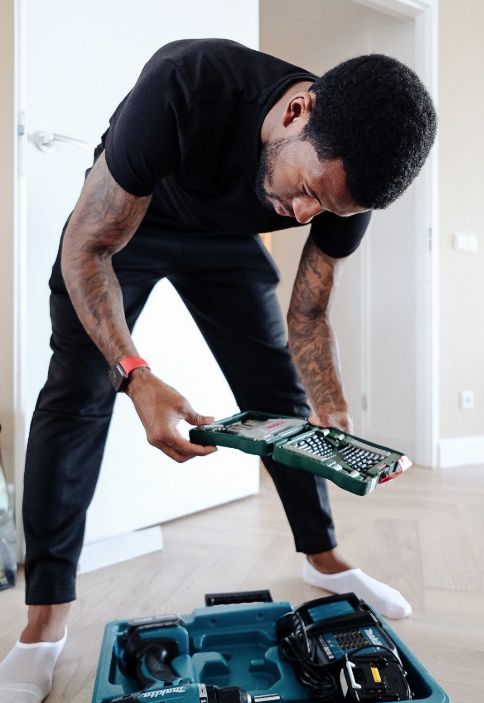
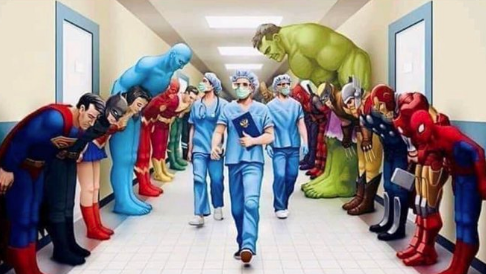
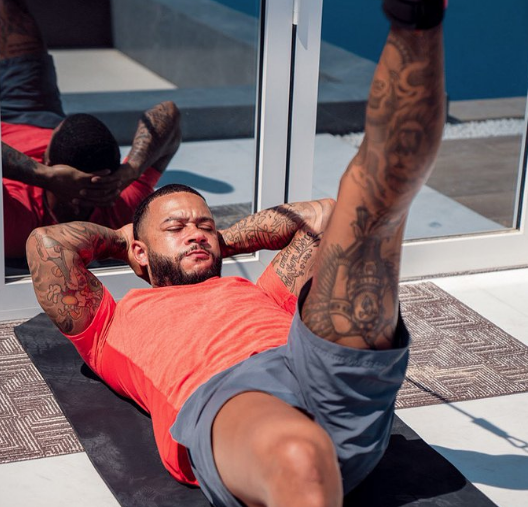
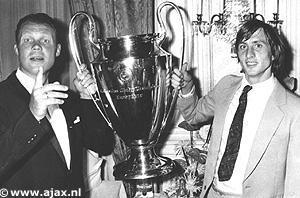
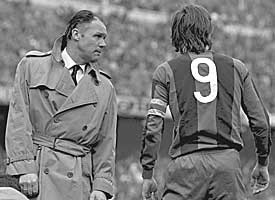
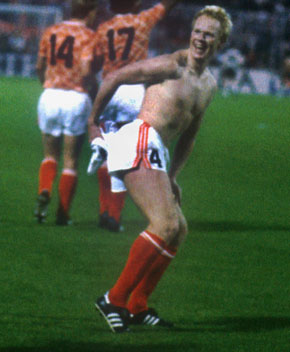
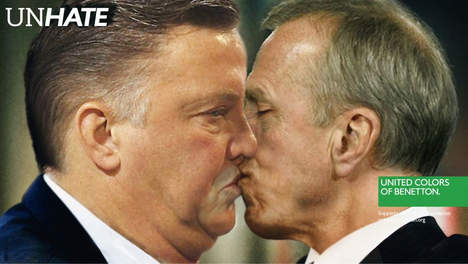
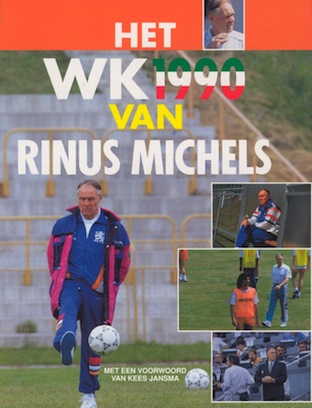 The book written on that weird 1990 campaign…
The book written on that weird 1990 campaign…